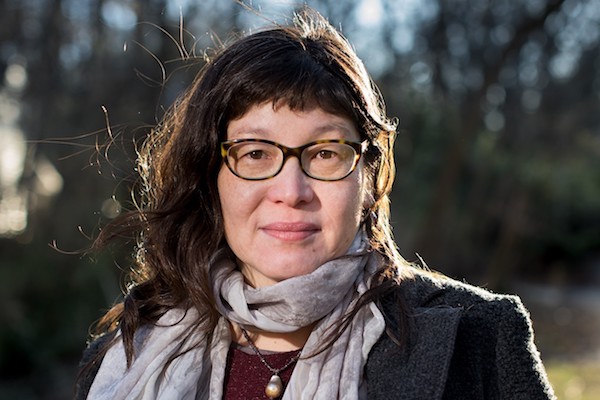(单词翻译:单击)
听力文本
Nick Schifrin: On this Christmas, many of us reflect on family. And, tonight, writer Alice Stephens, who is adopted, shares her Humble Opinion on the importance of not being what she calls the object of the adoption, but the subject.

Alice Stephens: Adoptees are used to having other people tell our stories for us. To describe my relationship to my family, I must use the passive voice to say, I am adopted. Adoption was something that happened to me. I had no more agency over the final result than a football does in a touchdown. When we're young, it is our parents who tell us our adoption story. I was told I was abandoned on a doorstep in my birth country of Korea. And for years, I pictured myself curled up in a cardboard box, waiting for someone to discover me. Parent narratives dominate the memoirs, how-to manuals, resource books and blow-by-blow accounts of the adoption process, relegating the adoptee to little more than an idealized representation of the parents' future happiness. Most of them end just when an adoptee's story truly begins, with the arrival into their forever homes. As adoptees, our challenge is to become the subject of our own adoption stories, and not the object. We know that there is no happily ever after. We know that we grow up, face challenges, and struggle to establish our own identities. We know that adoption is fraught with complexities that touch upon the most primal of human social traditions. We know the best and worst of adoption. While most children look to their parents and family to answer such fundamental questions as, who am I and where do I come from, the adoptee must find those answers from within. Where others are born with certainty of their origins and their place in the world, adoptees have to construct our own origin stories and search out where we most feel at home. So, next time you want to learn more about adoption, I suggest that you skip over the books and blogs by adaptive parents and non-adopted novelists and seek out the stories of adoptees themselves. Years later, I found out that the story of being left on a doorstep wasn't true, but, rather, was a simple way to explain to a very young me how I ended up as the youngest and only adopted child of a white American family. My birth mother hadn't abandoned me, as I had always believed, but had actually delivered me to the adoption agency. Knowing that fact made a huge difference in my life and taught me that the only person who could be trusted to tell my story was me.
重点解析
1.blow-by-blow 详尽的
She wanted a blow-by-blow account of what happened.
她需要一份关于事情来龙去脉的报告。
2.look to 依靠
The difficulties women encounter with their doctors partly explain why so many of us are looking to alternative therapies.
我们很多人都寄望于替代疗法,个中原因从女性看医生所遇到的困难可知一二。
3.end up 最终到达
If you don't know what you want, you might end up getting something you don't want.
如果你不知道自己想要什么,到头来你可能得非所愿。
4.deliver to 交付
They delivered their prisoner over to the invading army.
他们把俘虏交给了侵略军。
5.be used to 习惯于
We're used to the noise from the traffic now.
现在我们已经适应车辆往来的噪音了。
参考译文
尼克·斯齐弗林:值此圣诞节之际,很多人都会思念家人。今晚,曾被领养的作家爱丽丝·斯蒂芬斯分享了她的看法,主题是:成为被领养关系里的主角,而非被动的接受者。
爱丽丝·斯蒂芬斯:很多养子都习惯了听别人说我们被领养的故事。要描绘我与家人的关系,我必须得用被动语态,那就是我是被家人领养的。领养这件事发生在我身上了。对于这件事,我没有做主的权利,就像足球总是逃不过触地一样。我们小时候,都是养父养母给我们讲领养的经过。爸妈跟我说,我的出生地是韩国。当时我被遗弃在了门阶上。多年来,我一直都有想象当时的画面:我蜷缩在纸箱里,等着有人发现我。养父母的讲述主导了我们的回忆、发生的经过,详尽地叙述了我们被收养的经过。让被收养的孩子对于父母未来的喜悦有一个理想化的理解。但美梦总会在被领养的人生真正开始时,也就是进入新家开始时幻灭。作为养子,我们的挑战在于如何成为领养故事里的主角,而非被动的接受者。我们都知道从那以后,就不会有真正的开心。我们知道,在长大的过程中,我们会面临诸多挑战,挣扎着想确定自己的身份。我们知道,领养本身就存在很多的复杂性,会触碰人类社会传统中最原始的部分,我们知道领养的好处和坏处。虽然大多数孩子都希望父母和家人能解答一些基本的问题,比如“我是谁,我从哪里来”。但养子只能从自己身上寻找答案。没有被父母抛弃的孩子,从出生起,就确定了自己的出身和在这个世界上的身份,但养子只能自己构建出身,并寻找我们觉得最有家的味道的地方。所以,下一次大家想对被收养这件事了解更多的时候,我建议大家不要去看书或者读养父养母所写的博客,也不要去看那些没有被领养过的人写的小说,并试图从中寻找养子们的故事。多年后,我发现,当年我并非被遗弃在了台阶上,但这个方法很容易解释给那时候还小的我来听,毕竟我是这个美国白人家庭中最小的也是唯一的养子。跟我一直坚信的一样:我的亲生母亲没有遗弃我,而是将我送到了领养机构。这样的事实会对我的人生产生巨大的不同,让我明白我唯一可以放心与其讲述我的故事的人只有我自己。
译文为可可英语翻译,未经授权请勿转载!


